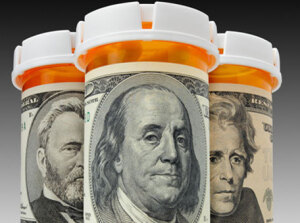por
Brendon Nafziger, DOTmed News Associate Editor | June 29, 2012
The U.S. Supreme Court's 5-4 ruling largely upholds the Affordable Care Act. For medical device companies, that means a 2.3 percent excise tax on devices included in the law will now start next year.
How is that really going to affect their businesses?
According to a note from investment bank Leerink Swann, the consequences will be mixed: on the one hand, the excise tax will be especially rough for smaller companies that have thin margins and greater "U.S. exposure." On the other hand, the expansion of coverage to 30 million plus people means procedure volumes could grow -- and that in turn means certain kinds of companies, such as hospital supply businesses and those who market to younger populations (or to those with pre-existing conditions who must be covered under the law), might gain.




Ad Statistics
Times Displayed: 30380
Times Visited: 760 Stay up to date with the latest training to fix, troubleshoot, and maintain your critical care devices. GE HealthCare offers multiple training formats to empower teams and expand knowledge, saving you time and money
In any case, the ruling for stocks is said to be "net neutral," as most investors had already factored the tax into their predictions.
"While we have -- and we believe the majority of the Street has -- already factored the excise tax into estimates, there was the hope that a repeal could drive upside to estimates," Leerink analyst Richard Newitter said in a note e-mailed to investors Thursday.
But according to their predictions, small-capitalization companies do have a tougher row to hoe, primarily because they have "generally lower profitability -– given that this is a tax on sales, and not on income." Leerink forecasts a 32 percent hit on 2013 earnings per share for small-cap companies, but only 4 percent for large caps.
Medical device stocks have been mostly down today, according to a recent Businessweek post.

